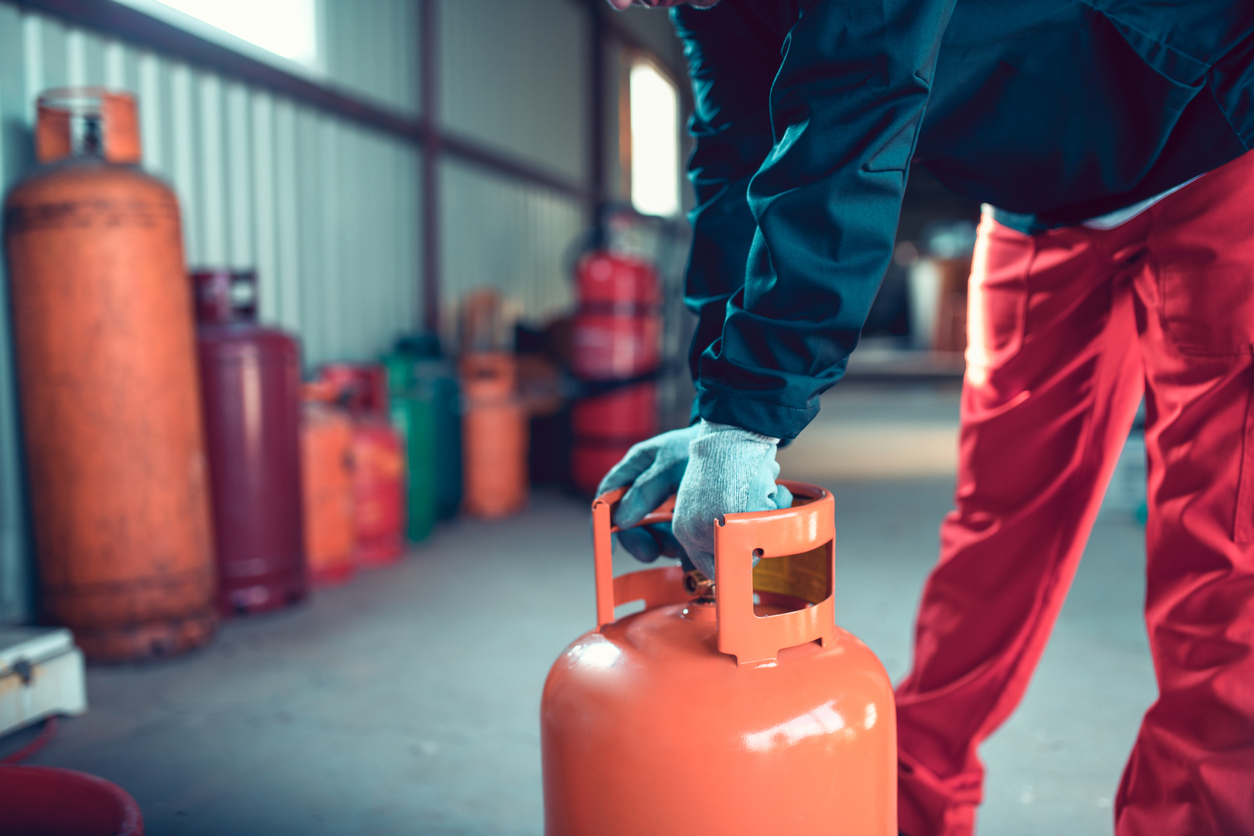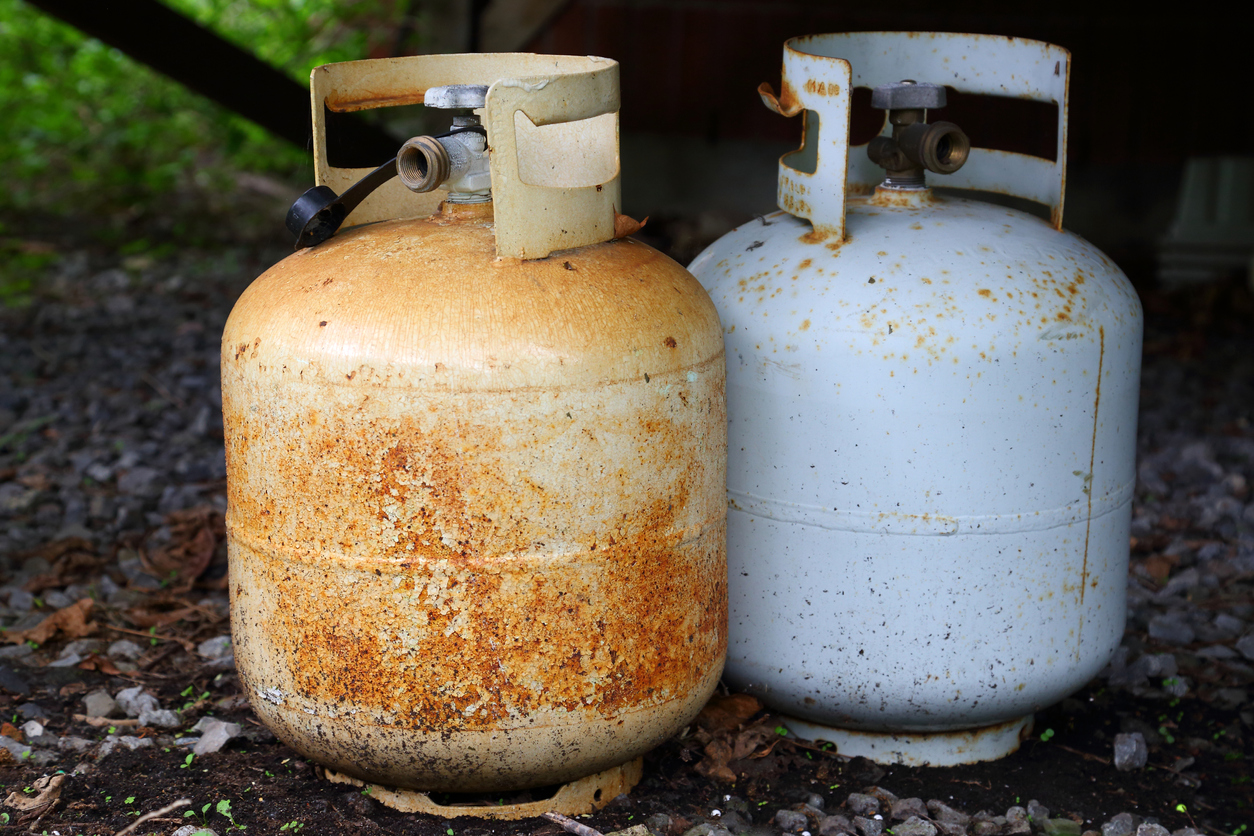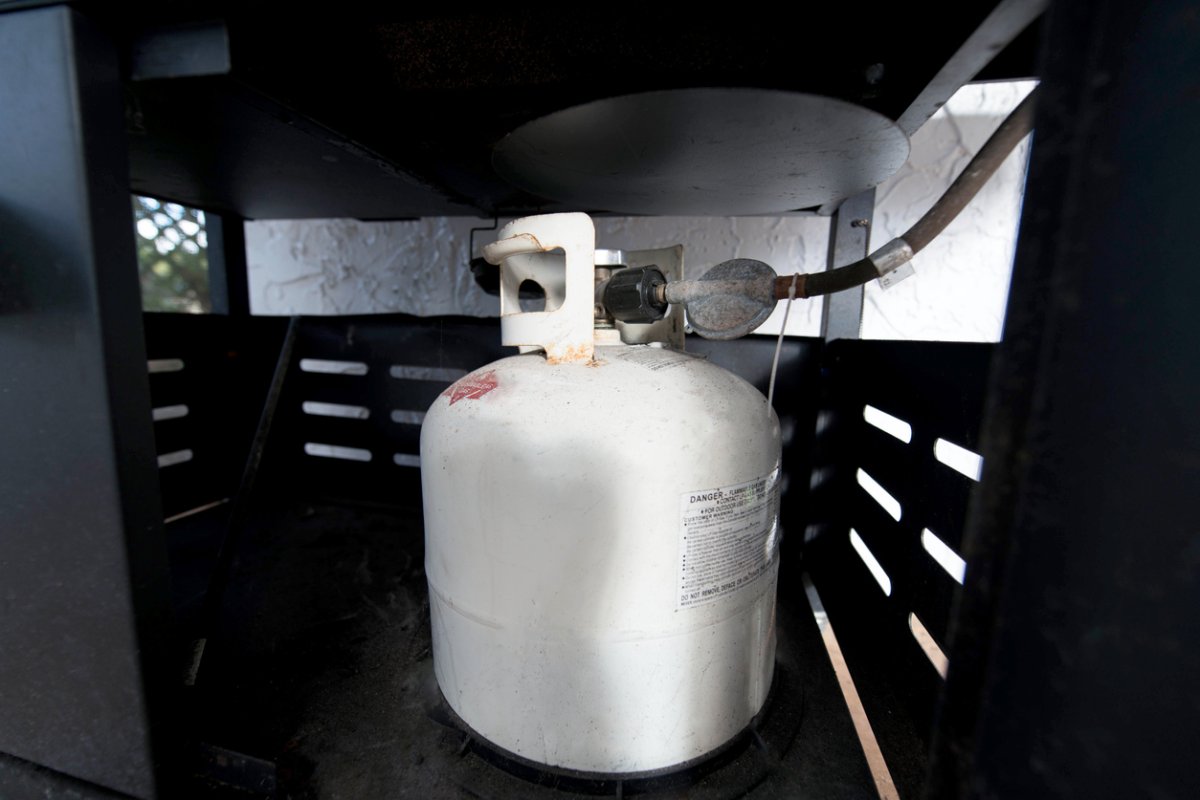We may earn revenue from the products available on this page and participate in affiliate programs. Learn More ›
Q: I don’t know how to dispose of propane tanks or where to dispose of propane tanks. Can I take my rusted tank to the dump, or can I recycle it?
A: Propane is flammable. Most waste and recycling facilities will not accept an old propane tank because it’s considered hazardous waste. That makes disposal a little more complicated than throwing out the pizza box from last night’s dinner.
In some cases, the tank can be recycled or exchanged. If you have a propane supplier nearby, the tank can probably be refilled. However, propane tanks do have limits to how many times they can be recycled and refilled. Used propane tanks damaged by corrosion, dents, or use require proper disposal, and it’s important to understand how to get rid of propane tanks properly.
RELATED: How To: Dispose of Paint Thinner
Exchange an empty propane tank for a refill.
A used propane tank that is still in good condition can be exchanged at a designated retailer, where you leave your empty tank in exchange for a full tank. Many propane supplier companies have exchange depots outside of local and chain hardware stores, gas stations, and convenience stores. Many of these depots are self-serve, 24 hours a day, 7 days a week.
Depending on the supplier and location, you may have to pay a fee in the store or at a kiosk. It depends on the company and location, but either way, the empty tank stays at the depot, and a full tank of equal size goes home with you.
Take an old propane tank to a specialized recycling center.

Tanks that are past their expiration date, damaged, rusted, or otherwise no longer usable cannot go to a standard recycling center. They pose a safety hazard because of the potential for residual propane still left inside the tank. However, they can go to a specialized recycling center with the equipment and employees trained to completely drain old propane tanks.
If you’re not sure where to find a specialized recycling center, contact a local propane supplier. They can often direct you to locations in the area that accept and handle hazardous materials like an old propane tank. City government websites may also include information on where and how to dispose of old tanks. Do not try to sneak a propane tank into the regular recycling to curbside garbage because lingering propane can explode or combust under pressure or when exposed to excessive heat.
Contact your local propane provider to dispose of large tanks.
Large permanent tanks require more assistance to recycle. In this case, contact a local propane supplier. They have the equipment necessary to safely remove, dispose of, and/or replace large household propane tanks. If you’re unsure if the tank needs replacement, suppliers can also inspect the tank and provide an assessment of its condition.
RELATED: How to Dispose of Old Gasoline the Right Way
Take small propane cylinders to a hazardous waste collection site.
If you’re not sure how to dispose of propane bottles or small tanks, like those used for camping and small portable heaters, think of it as a smaller version of a larger tank. It may be small, but it can still contain dangerous residual propane. When they’re no longer usable, take them to a hazardous waste collection site. A propane supplier, hardware store, garbage disposal service, or recycling center may be able to direct you to the closest location or provide additional information about how to dispose of a propane tank.
RELATED: How To: Dispose of Cooking Oil
Proper care can extend the life of propane tanks.

Propane tanks can last for years with proper care and maintenance. To preserve the life of the tank, do the following:
- Check for leaks. Leaks are a sign that the tank’s valve isn’t fully closed or that the tank could be on its way to failure. To check for leaks, pour warm, soapy water over the top of the tank, valve, and hose. A leak will cause bubbles in the soapy mixture.
- Check propane levels. Keep an eye on propane levels by pouring warm water over the tank, making sure to cover the highest part. Then, run your hand down the tank. It should feel warm to the touch until you feel a cool spot or noticeable temperature change. That first point where the tank feels cool is the approximate propane level. For more exact measurements, use a propane gauge.
- Regularly inspect valves, dials, and indicators. Broken valves, dials, and controls of any kind can make the tank dangerous. If they’re broken, it’s time to recycle the tank.
- Store outside but under cover in a well-ventilated area. Never store propane tanks inside the house. They should be stored outside, under cover, in a well-ventilated area to prevent the build-up of dangerous gasses should it leak.
- Watch for soot, kinks, and corrosion. Soot on the outside of the tank or on the appliance it’s fueling indicates that the tank isn’t functioning properly. Corrosion on the tank or kinks in the gas lines can also pose safety hazards. Contact a propane supplier to get instructions on how to proceed if you discover one of these issues.


